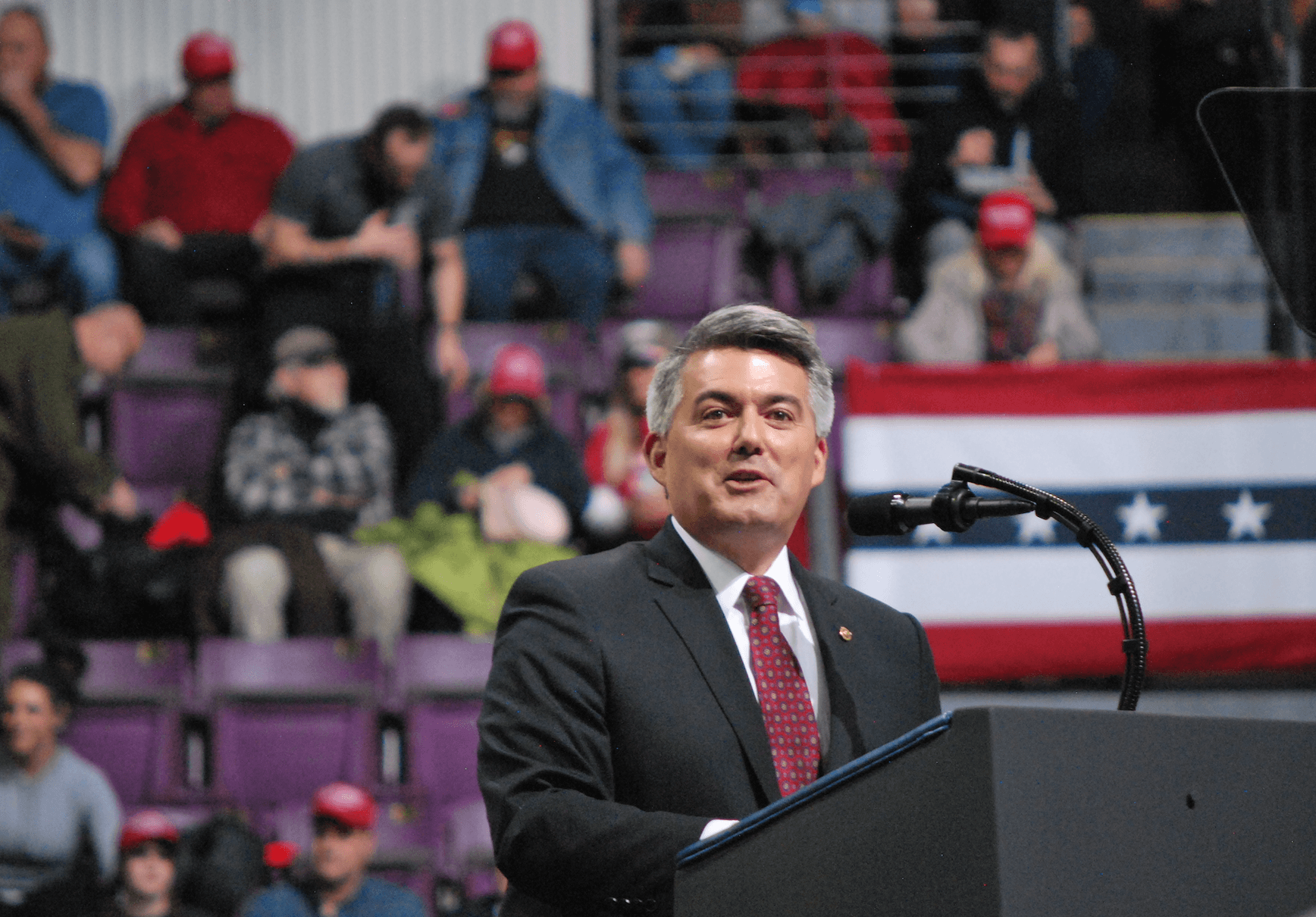When Colorado Sen. Cory Gardner first ran for Senate in 2014, the phrase “climate change,” “global warming,” or other words describing the destruction of the Earth’s atmosphere, didn’t appear on his campaign website, except in a linked news release slamming his opponent for supporting Obama’s “Overreach on Climate.”
But now, with pollsters saying Gardner can’t win November’s election without support from swing voters who want action on the climate crisis, Gardner has unveiled a new campaign website that claims he’s a “national leader” on “climate change policies that achieve results.”
“For more than a decade, Cory has been a national leader advocating for commonsense energy and climate change policies that achieve results,” states Gardner’s new campaign website.
“…Cory rejects the false choice between addressing climate change and economic growth. Instead, his bipartisan approach aims to reduce emissions, combat climate change, and grow the economy,” states Gardner’s new website in the section titled, “Colorado’s Senator, Colorado’s Priorities.”
Gardner’s self-description as a “national leader” on climate change policies is leaving environmentalists in disbelief.
“Actions speak a whole lot louder than words, and Cory Gardner’s record shows he has done far more to harm the environment and contribute to climate change than help,” said Pete Maysmith, Senior Vice President of Campaigns for the League of Conservation Voters Victory Fund, in a statement.
“Unfortunately for Cory Gardner, no campaign website update can make up for years of climate denial and siding with big corporate polluters,” said Maysmith.
In fact, it’s hard to find evidence that Gardner is a “national leader” on climate change, as his new campaign website claims.
And Gardner’s office did not return a call seeking to know why he thinks he’s a national leader on the issue–and what “commonsense” climate change policies he’s put forward.
Over his career, Gardner has said in multiple interviews that the climate is warming but that the human contribution to the problem is hyped in the news media.
Gardner voted five times to stop the EPA from regulating the major climate-change pollutant.
In the Senate, he’s opposed policies that would reduce emissions causing climate change, like Obama’s Clean Power Plan and the BLM methane rule.
In fact, the phrase “climate change” is completely absent from his list of priorities in the Senate, as stated on the “Issues” page of Gardner’s official Senate website. This suggests that he isn’t making climate change a priority for his work in Congress, much less being a “national leader” on “climate change policies that achieve results,” as his re-election website states.
Gardner’s shift comes as fellow Republicans across the country are starting to change their rhetoric on climate change, says Andrew Baumann, senior vice president of research for the Global Strategy Group, a Democratic pollster.
“All of a sudden you see Republicans starting to play lip service on climate,” said Baumann, noting that Republicans were “rushing to push through their own ‘climate plan’ last month” in the U.S. House. “I’m sure their pollsters are seeing the same things that we are, which is the salience of climate as an issue has really skyrocketed in the last couple of years.”
“Consistent climate denial and climate obstruction” by GOP leaders is a “real electoral liability” that can push votes from Republicans to Democrats, particularly in Colorado where “concerns about the climate and the environment are as high as anywhere in the country,” says Baumann.
The pollster pointed, as an example, to Douglas County, where center-right women are concerned about climate change, among other issues, and shifted heavily toward Democrats like U.S. Rep. Jason Crow and Colorado Gov. Jared Polis.
“Gardner must be realizing that his record of siding with Donald Trump and the corporate polluters to block any action on climate change is a real liability for him, and now he’s trying to pull the wool over the eyes of Colorado voters,” said Baumann. “He’s right to be afraid, because his record is going to be a real liability for him.”
Since Gardner was elected in 2014, Colorado’s electorate has been flooded by 1 million new voters, most of them young and Unaffiliated.
During his first Senate run, Gardner didn’t hold back on expressing his skepticism about the climate crisis, mocking Democratic Sen. Mark Udall’s stance on the issue.
Gardner has adopted a different tone since then, but he has yet to retract his statements that warnings of climate change are alarmist, despite re-stating to reporters and in a news release last year that he believes climate change is real.
Gardner’s campaign website, which was changed sometime over the past four months, not only presents the Republican as a fighter of climate change, but also scrubs any mention of his longstanding opposition to Obamacare.




